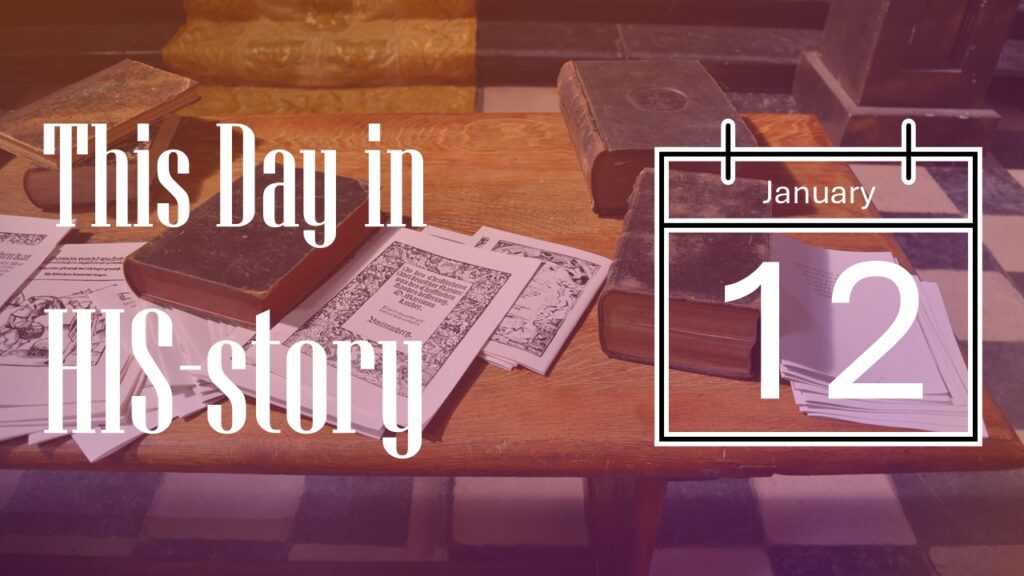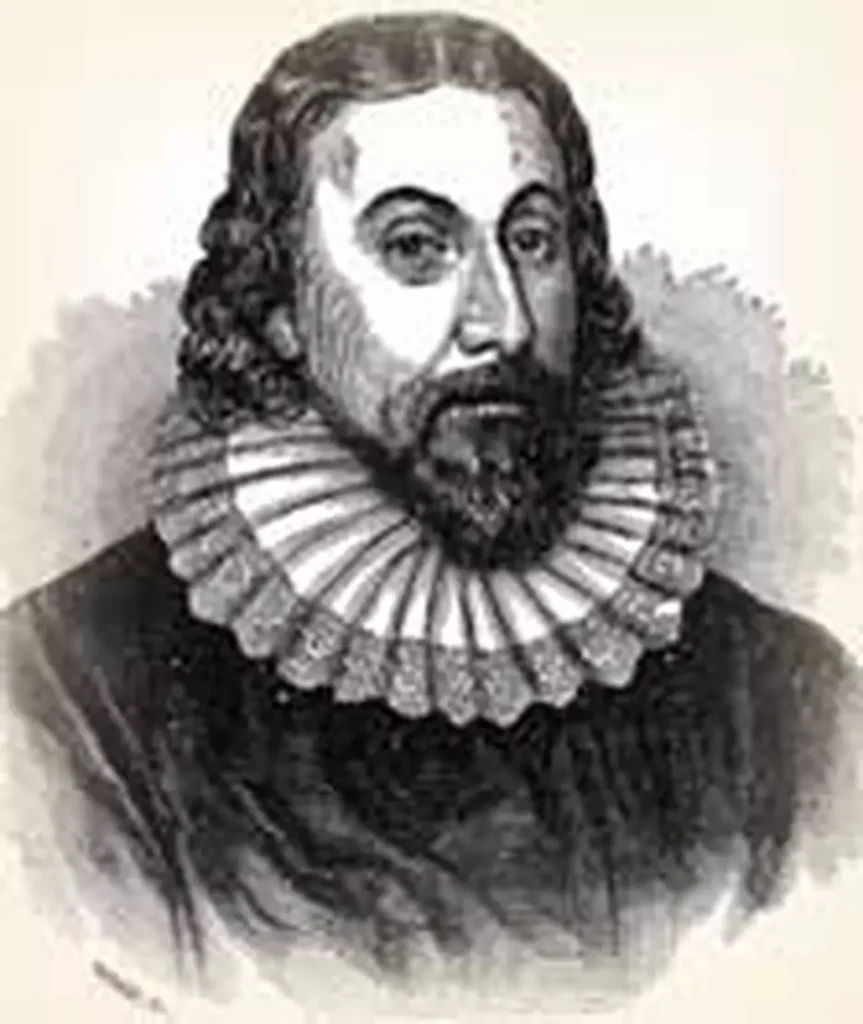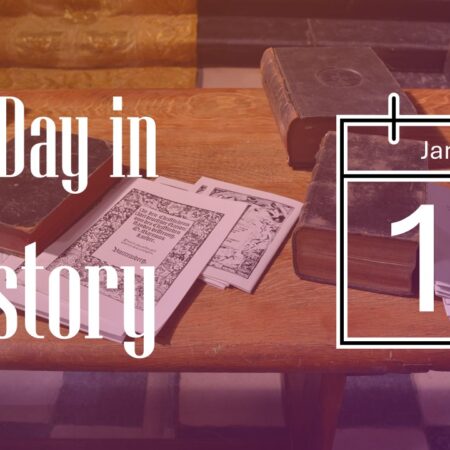
1588
Can you imagine the outcry if the Boston Globe were to announce that the Governor of Massachusetts had preached one Sunday from the Bible, using as his text, Christ’s “Sermon on the Mount?” Does the very idea sound ridiculous and impossible? Well, such an event did take place in 1630. Governor John Winthrop of the Massachusetts Bay Colony preached aboard ship to a great company of Puritans sailing with him.

John was born in Suffolk, England on this day, January l2, 1588-the same year the Spanish Armada attempted to invade England. The Winthrops were Puritans–that is, they wanted the Church of England to be purified of traditions, practices, and beliefs not specifically found in the Bible. They were also a people of means, owners of the manor at Groton who prospered by making and trading cloth.
Early Devotion
Even as a boy, John was sincerely devoted to God and even considered becoming a minister. Instead, he trained in the law and received a court appointment. Although he followed his father in trade and succeeded him as lord of the family estate at Groton Manor, John never ceased to honor God in all his undertakings. The fact that he had not entered the ministry troubled him so much that he admitted, “…I think I am the rather bound to take the opportunity for spending the remainder of my time to the best service of the church which I may.”
Leaving Persecution
During the 1620s, there was religious and political turmoil in England as King Charles I battled for the absolute power of the monarchy. Persecution of Puritans increased because the king wanted everyone to follow the formulas of the national church. Many Puritans planned to emigrate. By 1629 a group of them had formed the Massachusetts Bay Company to settle America. John was elected governor of the company. Soon he had enlisted 700 colonists for the new settlement, and in l630, their fleet sailed for America. It was on this voyage of the Arbella that John preached on Christ’s “Sermon on the Mount.”

While aboard ship, John also issued a “Model of Christian Charity,” ideas that would stamp the young Puritan colony. He called for brotherly love and a strong commitment to the Christian faith– but moderation in just about everything else.
Massachusetts Colony
He devoted over 20 years of his life to building the Massachusetts Colony. A later Puritan called him an “American Nehemiah” because, like Nehemiah (who left an influential court position to rebuild the walls of Jerusalem), John cast aside a high position to unselfishly share the hardships of his fellow colonists in establishing a godly society.

Like all great men, John had his warts. Although he was a very practical administrator, his ideals were so strong that they allowed little room for tolerance. He presided over the trial of Anne Hutchinson who diverged from Puritan views and called for women’s rights. But rather than execute her, which he might have done, he exiled her.
1748
HT: Christian History Institute
John Wesley encountered great opposition as he carried the gospel throughout England.

His journal recounts many instances, but few can rival the episode in Shepton on Friday January 12, 1748.
Quote
“After preaching at Oakhill about noon, I rode on to Shepton, and found them all under a strange consternation. A mob, they said, was hired, prepared, and made sufficiently drunk, in order to do all manner of mischief….After we were gone into the house, they began throwing great stones, in order to break the door; but perceiving this would require some time, they dropped that design for the present. They first broke all the tiles on the pent-house over the door, and then poured in a shower of stones at the windows. One of their Captains in his great zeal, had followed us into the house, and was now shut in with us. He did not like this, and would fain have got out; but it was not possible. So he kept as close to me as he could, thinking himself safe when he was near me. But staying a little behind, when I went up two pair of stairs, and stood close on one side, where we were a little sheltered, a large stone struck him on the forehead, and the blood spouted out like a stream. He cried out, ‘O Sir, are we to die to-night ? What must I do? What must I do?’
“I said, ‘Pray to God. He is able to deliver you from all danger.’ He took my advice, and began praying in such a manner, as he had scarce done ever since he was born.
“Mr. Swindels and I then went to prayer: after which I told him, ‘We must not stay here; We must go down immediately.’
“He said, ‘Sir, we cannot stir, you see how the stones fly about.’ I walked straight through the room, and down the stairs; and not a stone came in, till we were at the bottom. The mob had just broke open the door, when we came into the lower room; and exactly while they burst in at one door, we walked out at the other. Nor did one man take any notice of us, though we were within five yards of each other.
“They filled the house at once, and proposed setting it on fire; but one of them happening to remember that his own house was next, with much ado persuaded them not to do it. Hearing one of them cry out, “They are gone over the grounds,” I thought the advice was good. So we went over the grounds to the farther end of the town, where Abraham Jenkins waited, and undertook to guide us to Oak-hill.
“I was riding on in Shepton-lane, it being now quite dark, when he cried out, ‘Come down: come down from the bank.’ I did as I was bid; but the bank being high, and the side very near perpendicular, I came down all at once, my horse and I tumbling one over another. But we both rose unhurt. In less than an hour we came to Oak-hill, and the next morning to Bristol.”
